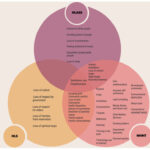New Jersey Gears Up for Governor’s Primary Election
As New Jersey approaches its primary election on June 10, 2025, voters are set to select a new governor to succeed the term-limited Phil Murphy. The race, which involves a multitude of candidates from both major parties, promises to be a pivotal moment for the state’s political landscape.
A Unique Democratic Primary
In the Democratic camp alone, six candidates are competing for the nomination, creating a vibrant and unpredictable primary. Among these contenders are two sitting U.S. Congress representatives—Rep. Josh Gottheimer and Rep. Mikie Sherrill—as well as prominent mayors including Ras Baraka of Newark and Steve Fulop of Jersey City. Also in the mix is Sean Spiller, president of the powerful New Jersey Education Association, and former Senate President Steve Sweeney, making this race particularly noteworthy.
Professor Kristoffer Shields, director of the Eagleton Center on the American Governor at Rutgers University, noted that this primary features a level of competition not seen in New Jersey since 1981, where multiple candidates hold a genuine shot at victory.
While Sherrill has been leading in limited polls, the race remains tightly contested, emphasizing the importance of voter mobilization. Shields remarked, “Landing just 30% of the vote might be enough to win, but the candidate who can efficiently rally their supporters is likely to come out on top.”
GOP Frontrunner Emerges
The Republican side is similarly competitive, featuring five candidates, with Jack Ciattarelli recognized as the frontrunner. Ciattarelli’s previous experience and backing from former President Trump position him as a strong contender. Despite this, Shields cautioned against labeling it as Ciattarelli’s election to lose, highlighting the potential for surprises given voter engagement levels.
Ciattarelli faces competition from three Trump-aligned candidates—Justin Barbera, Mario Kranjac, and Bill Spadea—and moderate Jon Bramnick, making for a complex primary landscape where shifting voter sentiments could lead to unexpected outcomes.
Voter Turnout: A Key Factor
Historically, primary voter turnout in New Jersey has been relatively low; the 2021 primary saw just 12% participation. With the current June election falling in an off-year and competing with summer plans, many are skeptical about turnout levels. Nonetheless, Shields believes the contentious nature of recent national politics, particularly the aftermath of the 2024 presidential election, may galvanize voter interest and participation.
“This primary is a chance for voters to express their opinions on national issues,” Shields added. “Whether in support of or in opposition to the current administration, I expect to see increased turnout this year.”
Key Election Issues
While Trump’s influence will undoubtedly play a role in the campaign, affordability remains the central theme. Candidates across the board are focusing on issues related to housing costs, property taxes, and funding for critical services such as NJ Transit.
Shields emphasized the importance for candidates to present credible plans to address affordability, stating, “If you want to be the next governor of New Jersey, you must have a realistic plan that resonates with the electorate.”
| Candidate Name | Party | Current Position |
|---|---|---|
| Josh Gottheimer | Democrat | U.S. Representative |
| Mikie Sherrill | Democrat | U.S. Representative |
| Jack Ciattarelli | Republican | Former State Assemblyman |
| Ras Baraka | Democrat | Mayor of Newark |
| Steve Fulop | Democrat | Mayor of Jersey City |
With a diverse set of candidates and pressing issues at the forefront, New Jersey’s primary election is poised to be a significant political event, shaping the future governance of the state.




